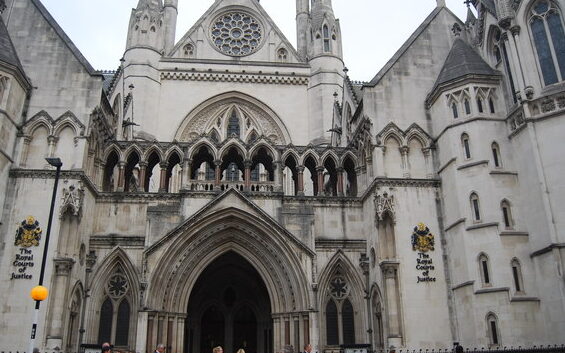Parents lose brutal court battle to block VAT on private school fees, leaving many facing huge hikes
Private school parents and their children have suffered a crushing legal defeat after the High Court dismissed their desperate attempt to block the government’s decision to impose VAT on school fees. The ruling delivers a severe blow to families, who fear they may no longer afford independent education.
The case, brought against Chancellor Rachel Reeves, represented seven children currently attending private schools. Their parents argued that increased fees—if schools chose to pass on the VAT cost—could make continued attendance impossible. Their reasons for choosing private education included special educational needs (SEN), religious requirements, and the need for single-sex schooling due to past bullying.
However, their arguments failed to sway the court. Handing down judgment, Dame Victoria Sharp, president of the King’s Bench Division, alongside Lord Justice Newey and Mr Justice Chamberlain, firmly dismissed the claims.
The judges ruled that the European Convention on Human Rights did not safeguard any supposed “right” to pay private school fees at a particular level. They pointed out that independent school fees are set by market forces, entirely separate from government control. Parents, the court stressed, retain the option of avoiding VAT altogether by sending their children to state schools or opting for home education.
“Private school fees are set independently of government and are inherently subject to market forces. Parents always have the option of not paying any school fees at all—and therefore no VAT—by sending their children to a state school or educating them at home,” the judgment stated bluntly.
The verdict comes as a crushing blow to the claimants and delivers a significant legal victory to the government, which has made VAT on private school fees a centrepiece of its fiscal policy. The policy aims to raise funds for public services, despite fierce opposition from the independent education sector and many parents.
Embed from Getty ImagesAbigail Trencher, head of education at leading law firm Birketts, described the ruling as a “big blow” but said the outcome would surprise few. “Even those within the independent sector always appreciated that the odds were stacked against a successful outcome,” she commented.
Yet Trencher warned that the judgment could reignite debate about the government’s policy, given the independent sector’s significant economic contribution. Britain’s private schools are globally renowned and are estimated to contribute £16.5 billion annually to the UK economy.
“It remains to be seen how much tax revenue will be collected by virtue of the fiscal changes made, and whether it is worth the grave impact these changes have had on the sector, in terms of school closures and damage to the UK’s standing on the international education market,” Trencher cautioned.
Throughout the legal battle, parents argued that the VAT policy disproportionately punished families making sacrifices to fund their children’s education. They warned of widespread consequences: from school closures and job losses to increased pressure on the already stretched state education system as pupils are forced out of private schools.
The government, however, stood firm. During hearings, its legal team argued that certain evidence could not be disclosed as it fell under parliamentary privilege. The court ultimately upheld the government’s position across every argument presented.
The High Court’s decision now leaves thousands of families facing the grim reality of sharply rising fees. Some independent schools have already warned that full VAT charges could push annual costs up by as much as 20%, placing immense strain on middle-income families who have long prioritised private education.
With this ruling, the government’s VAT policy on private school fees now appears legally unassailable. For many families, the choice will soon be stark: absorb the soaring costs, switch to state education, or withdraw entirely from formal schooling. The judgment has sent shockwaves across the independent education sector, leaving its future landscape deeply uncertain.




